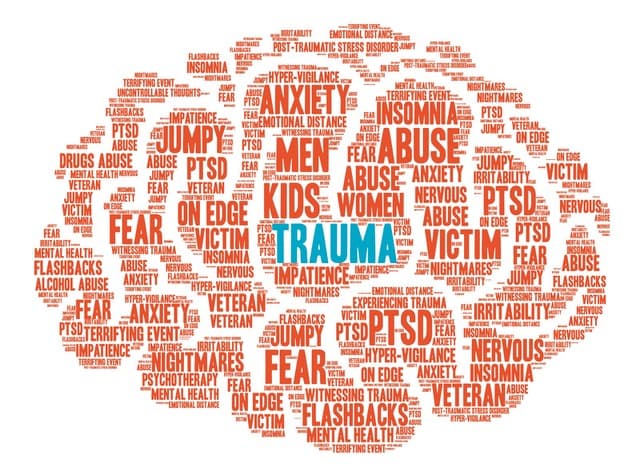Trauma Counselling Therapy
Vancouver Trauma Therapists

What is Trauma?
Trauma is a word used frequently in the field of mental health, and there are usually two common definitions. The first definition refers to trauma as a distressing or disturbing event that someone has lived through and survived. The second definition refers to trauma as the lasting psychological impact that a disturbing event leaves on someone (being “traumatized”).
At its core, trauma is any event or experience that overwhelms you psychologically or emotionally, violates your sense of safety, and negatively disrupts your understanding of yourself or the world. Some examples include: natural disaster, physical or sexual assault, or witnessing a fatal accident.
Any event that overwhelms you psychologically or emotionally and disrupts your sense of safety.
However, trauma doesn’t have to be a single incident to cause enduring effects. It can also be the result of ongoing and repeated events – often during early development and interpersonal in nature. This is referred to as complex trauma. Some examples are: childhood and adolescent bullying; ongoing domestic violence; growing up in a crime-ridden neighbourhood; chronic abuse (psychological, physical, sexual); and physical or emotional neglect.
Many other experiences which are often dismissed can also be traumatizing and deeply damaging. For example: having emotionally absent parents during childhood, betrayal in a romantic relationship, or experiencing a humiliating event. Different people can respond differently to the same event, and the event itself is much less important than a person’s subjective experience of it.
Signs & Symptoms
When unprocessed, the impacts of trauma can show up in the form of anxiety, depression, flashbacks, nightmares, or even in physical ways, such as headaches, stomach pains, or feelings of numbness and disconnection. Many people who experience trauma also develop Post-Traumatic Stress Disorder (PTSD) – a condition where they continue to re-experience the trauma and have symptoms long-term.
Some common symptoms are:
- Fear, anxiety, stress
- Sadness, depression, or despair
- Negative changes in thinking/ mood (e.g. feels of hopelessness)
- Shame and self-blame (especially common in sexual abuse survivors)
- Feeling numb and disconnected (e.g. dissociation)
- Social withdrawal and isolation
- Anger, irritability, and mood swings
- Confusion and difficulty concentrating
- Feeling constantly “on edge” (hyper-arousal)
- Exaggerated startle response
- Self-destructive or high-risk behaviour
- Self-medicating with alcohol and other drugs
- Nightmares and flashbacks to the trauma
- Trouble sleeping or over-sleeping
- Chronic pain
Trauma overwhelms our ability to cope, causes feelings of helplessness, diminishes our sense of self and our ability to feel the full range of emotions and experiences.
Counselling Therapy for Trauma
People cope with trauma differently. Some turn to drugs and alcohol, others engage in risk taking behaviours, and some people repress their experiences completely. Others may turn to activities like yoga, dance, or spending time with animals.
Counselling is an effective first-line treatment for trauma and PTSD. Counselling provides a safe space where you can rebuild feelings of security and trust. Your therapist will help you decide on the best approach, and together you will come up with a plan to safely work through the trauma at a comfortable pace.
Through counselling you will connect with your inner resiliency, and develop healthy coping and emotion-regulation strategies. You will also work through negative thoughts, feelings or sensations you may have. Ultimately your therapist will guide you to process and integrate the trauma, so that you can heal and even grow from your experiences.
At ARC, all of our therapists practice from a trauma-informed lens. This means we recognize the presence of trauma symptoms, and always keep in mind that current challenges may be a function of past trauma. Trauma-informed care also means understanding, anticipating, and responding to the unique needs of someone who has (or may have) experienced trauma.
ARC therapists have training in specialized treatment approaches such as somatic psychotherapy, and eye movement desensitization and reprocessing (EMDR).
Different approaches are effective for different people, and your therapist will help you determine the type of approach and care you need.
To learn more please request a consultation below.






